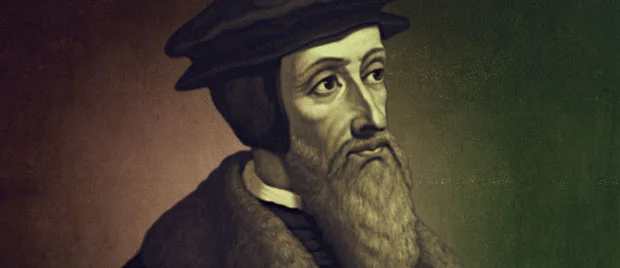The Greatness of John Calvin

In the daily service of shepherding Christ's flock, I often find myself turning to my spiritual forefathers for answers to the most difficult matters in the church's life and doctrine. Even though our forefathers are at home with the Lord, by our mutual faith they provide us with words of comfort, encouragement, and caution. As I reflect on the doctrinal, ecclesiastical, and personal hardships they faced, and take into account the Lord's sustaining work in their lives, I am humbled and challenged by their united voices, which seem to admonish us from the heaven-lies, urging us to fight the good fight, to be faithful till the end, and to honor the Lord above all.
Among the many faithful voices from the past, there seems to be one that rises above them all. It is the voice of a man who desperately wanted us to hear not his own voice but the voice of God in His Word. It is precisely on account of the humility the Lord had instilled in the mind of Calvin that I am drawn to him. In fact, there is not a week that passes that I do not think about the example Calvin set forth for us and for Christians in every generation. And in life and ministry, as I have considered Calvin the man, I have observed the following things: Calvin was a man who died to himself and sought to take up his cross daily so that he might serve the Lord and the flock God had entrusted to him (Luke 9:23). He was a man who did not think of himself more highly than he should have, but sought to esteem others better than himself (Rom. 12:3; Phil. 2:3). He was a man who did not seek to please men first and foremost, but sought to please God ultimately and completely (Col. 1:10; 3:23). He was a man who strove not to live for his own kingdom but for the kingdom of God (Matt 6:33; 21:43). He was a man who sought to be faithful in the eyes of God, not successful in the eyes of the world (Rev. 2:10). He was a man who did not desire his own glory, but desired to seek the glory of God in all he did (1 Cor. 10:31; Col. 3:17). He was a man who did not try to develop a system of theology that complemented the Word of God; rather, he strove to derive his theology from the Word of God for the right worship, enjoyment, and love of God.
Considering all of this, Calvin is among the greatest men of all time. However, his greatness, as B. B. Warfield recognized, was not in his service to himself but in his surrender to God: "Here we have the secret of Calvin's greatness and the source of his strength unveiled to us. No man ever had a profounder sense of God than he; no man ever more unreservedly surrendered himself to the Divine direction." This is Calvin's greatness—his ultimate surrender to God. In this is Calvin's legacy for those of us who desire not simply to wear the five-pointed badge of Calvinism, but who desire to clothe ourselves in the humbling power of the gospel (1 Peter 5:5). Let us not be so easily satisfied with a simple insignia of a simplistic Calvinism; rather, let us drape ourselves with Calvin's Calvinism, a Christ-centered, Spirit-empowered, God-glorifying, gospel-driven Calvinism that shines so brilliantly that the deceitful darkness of sin would be conquered in our hearts so that, in turn, we might shine as the light of Jesus Christ to this dark world—for His kingdom and His glory.
This excerpt is taken from John Calvin: A Heart for Devotion, Doctrine, and Doxology edited Burk Parsons.

